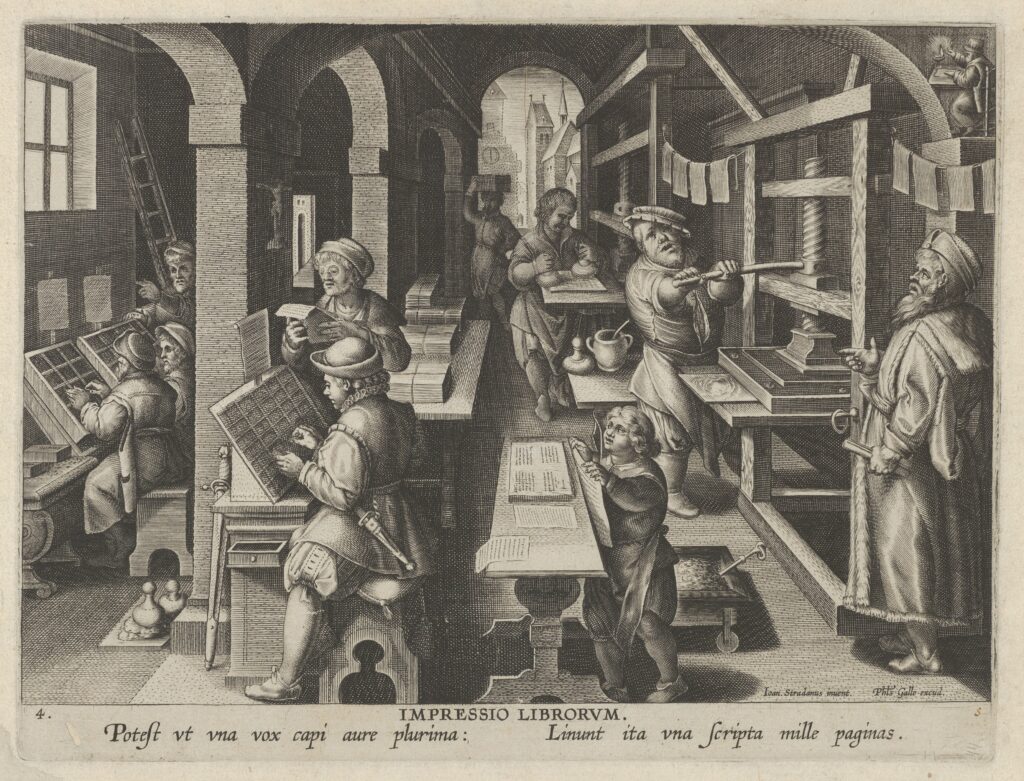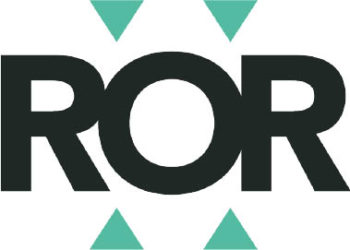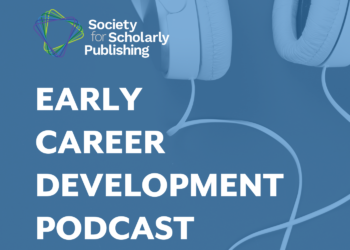A robust and nimble infrastructure is imperative to support the vital work of scholarly communication and effectively and efficiently meet the emerging service needs of different stakeholders. Publishers and other scholarly communication services and providers rely on this shared infrastructure in many key parts of their work, and it forms a foundational part of their technology stack and service framework.

The Metropolitan Museum of Art.
This year, Ithaka S+R has been at work on a project to examine the shared infrastructure for scholarly communication and ultimately make recommendations for its future. STM Solutions provided sponsorship support that made this project possible, for which we express our gratitude. The research and analysis is solely the work of the project team members, and we accept all responsibility for it.
In April, we published a landscape review of the shared scholarly communication infrastructure. This week, we issued a draft of our project report, and we hope you’ll consider reading that draft in the coming weeks and providing us with comments, suggestions, and other feedback by the end of August. Comments, suggestions, and other feedback can be shared with our project team directly at sr-infrastructure@ithaka.org through August 31, 2023.
Our project report is currently structured around several principal sections. First, we look at the strategic context for scholarly publishing and its infrastructure, which we see consisting of four primary elements:
- The sector is increasingly identified as a service provider to various groups that produce and consume scholarly information, rather than as primarily the producer and disseminator of copyrighted materials. In the face of alternative publishing models and competition from newer entrants, there is substantial consolidation among traditional publishers.
- The sector’s core goal of facilitating human authorship and readership is giving way to the enablement of machine-to-machine communication.
- Advancing scholarship and science as a trusted global public good is becoming increasingly complicated due to the polarized political and information environment, enhanced attention to academic fraud and misconduct, and growing geopolitical divergences that amplify variations in scholarly communication policies and practices in different geographies.
We have made every effort to shape this strategic context to be representative and broadly inclusive of many different perspectives and we welcome comments and suggestions to that effect.
In our analysis, we dig into several important types of shared infrastructure, including the nature of how such infrastructure is provided and some of the opportunities and challenges faced in each category:
- Identifiers and standards, the tools and systems that make interoperability possible;
- Enterprise publishing systems such as hosting platforms and editorial management systems;
- Discovery, collaboration, and trust, an unsettled category where we believe there is opportunity for innovation and disruption; and
- Preservation, the often unheralded but absolutely vital long-term backstop of the scholarly record.
Finally, we look at several key opportunities for new kinds of shared infrastructure that largely do not yet exist.
- An infrastructure to connect the atomized components of the scholarly record to one another, whether through the version of record or in another way;
- An infrastructure to safeguard the integrity of the scholarly record and ensure it is trustworthy;
- An infrastructure to make meaning from the knowledge that is fragmented within individuals articles and the scholarly process; and
- An infrastructure to support the array of new business models that are providing for open and public access.
We are certain that there are other new categories of shared infrastructure that should be considered and we greatly welcome suggestions to that effect.
Again, here is a link to the draft. We will review all suggestions contributed by the end of August. Looking ahead, we will publish a final version of this report, including recommendations, in October 2023. Again, please click here to access the draft. Comments, suggestions, and other feedback can be shared with our project team directly at sr-infrastructure@ithaka.org through August 31, 2023.
Discussion
3 Thoughts on "Shared Infrastructure for Scholarly Communication: A Draft Report for Comment"
Disappointed beyond words with the draft and its Western privilege. This paragraph alone should be consigned to the colonialism trash can: “Ultimately, at least some observers believe that there is a real tension between, on the one hand, providing a validated and trustworthy scholarly record and, on the other hand, providing an open system in which anyone globally can participate” [p.11]. Seriously? Did the authors and proofreaders not read that and think there was something a little off with what it was saying with its large implications around what warrants ‘validated and trustworthy’? Is it only valid if it is published in America or in the English language? You are essentially saying that if it is paid for it is trustworthy, and if you can’t pay for it well it’s neither valid nor trustworthy. And we wouldn’t want an open system in which anyone globally can participate, would we? Ithaka, you must do better.
Thank you for your comment. You interpreted this sentence in a way that we absolutely did not intend, and so I thank you for calling attention to it. To be clear, what we are trying to articulate here is that there are clearly a variety of bad actors working to manipulate the scholarly record for nefarious purposes. Ensuring that these bad actors are blocked is one of the most important roles of the scholarly publishing sector, and doing so requires identifying those bad actors, or their problematic submissions, which cuts against certain forms of openness as some of our interviewees described it to us. We certainly did not intend to imply, nor do we in any way believe, that materials that are not written by Americans or in the English language are for those reasons less trustworthy. We’ll address this as part of our revisions. Thank you again for this comment.
I have calmed down now since my incandescent rage at the colonial language in the landscape review and draft. There are far more eloquent and less enraged commentators to unpick the implications in the text. In blunt terms, Ithaka should distance itself from this research on how to monetize publications in the face of the rise open infrastructure globally and AI. It is clearly so limited in scope to be useless to anyone but commercial publishers in North America and Europe, or anyone who feels that English is the only credible vehicle for ‘real science’. Or just call it what it is, a plan to maintain profitability by working together against those commies in the rest of the world. And you can launch it at yet another expensive conference dinner with only those who can pay to eat alongside the hundreds of representatives from the STM Association or SSP members. Let’s be honest, this is not “The Second Digital Transformation of Scholarly Publishing” but how can we work together to maintain margins and our control of publishing to the exclusion of the rest of the world? Using the words of the authors they want “a validated and trustworthy scholarly record” rather than “…an open system in which anyone globally can participate.” Exclusive to the detriment of global research.



